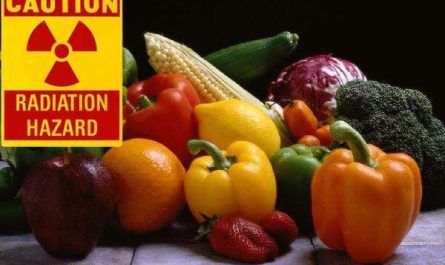Commercial seaweed finds wide application in various industries including food, fertilizers, pharmaceuticals, and personal care owing to its nutritional content and health benefits. Seaweed is a rich source of minerals, proteins, and vitamins that are essential for human nutrition. It is being increasingly used as a natural ingredient in food products to provide texture and add nutritional value. The growth in demand for clean label and organic food ingredients is further driving the adoption of seaweed extracts in the food industry.
The global commercial seaweed market is estimated to be valued at US$ 12.67 billion in 2024 and is expected to exhibit a CAGR of 2.5% over the forecast period of 2024-2031.
Key players operating in the Commercial Seaweed Market Size are E.I. Du Pont de Nemours and Company, Travena Organic Solutions Ltd., Cargill Inc., Roullier Group, Leili Group, Biostadt India Limited, Compo GmbH & Co. KG, Acadian Seaplants Limited, Gelymar SA, BrandT Consolidated, Inc., Seasol International Pty. Ltd., CP Kelco., West Coast Marine Bio-Processing Corp., Chase Organics GB Limited, Indigrow Ltd., Acadian Seaplants, Algaia SA, and The Seaweed Company.
Key opportunities in the market include growing consumer preference for plant-based foods and rising investments by market players to expand production capacities. The commercial seaweed market is also being driven by increasing global demand for natural fertilizers. Seaweed fertilizers contain growth hormones and micronutrients that are essential for plant growth and can boost crop productivity. With growing organic farmlands worldwide, demand for seaweed based biofertilizers is witnessing a significant rise.
The global commercial seaweed market is growing at a steady pace due to rising application of seaweed extracts in various end-use industries. Some of the major drivers fueling the growth of commercial seaweed include rising health awareness, increasing preference for organic foods, and growth in nutritional supplement markets. Changing consumption patterns of consumers with growing inclination toward healthy diets and veganism have augmented the demand for plant-based natural ingredients like seaweed. Growing awareness regarding environmental benefits of commercial seaweed is further expected to propel the market growth in coming years.
PEST Analysis
Political: Commercial Seaweed aquaculture is regulated by various government authorities to ensure the sustainable harvest and development of seaweed farms. Regulations cover areas like environmental protection, land use rights and foreign investment.
Economic: The commercial seaweed market is driven by strong demand from food & beverage industries as an ingredient and texturizer. Growth in food processing and rising health awareness support market expansion. Fluctuations in raw material prices impact producers.
Social: Consumers increasingly prefer food with additional health benefits. Seaweed is seen as a superfood rich in nutrients. Growing vegan/vegetarian trends create opportunities for seaweed use in meat alternatives. Environmental protection is also important to consumers.
Technological: Advanced aquaculture techniques help harvest seaweed on a large commercial scale. Drying, processing and product development technologies extend product applications. Research on higher yielding varieties and integrated multi-trophic aquaculture boosts production. Data analytics enables efficient supply chain management.
In terms of geographical concentration of value, the Asia Pacific region accounts for the bulk of the global commercial seaweed market share currently. Countries like China, Indonesia, the Philippines and Korea have been cultivating seaweeds for centuries and dominate world production.
The European market is considered the fastest growing for commercial seaweed. Increasing demand for healthy, sustainable and local food options drives the market in countries like Ireland, Norway and France. Consumer awareness about the nutritional benefits of seaweed is also higher. Supportive regulations and incentives have encouraged farmers to take up seaweed aquaculture in the region.
*Note:
1. Source: Coherent Market Insights, Public sources, Desk research
2. We have leveraged AI tools to mine information and compile it



